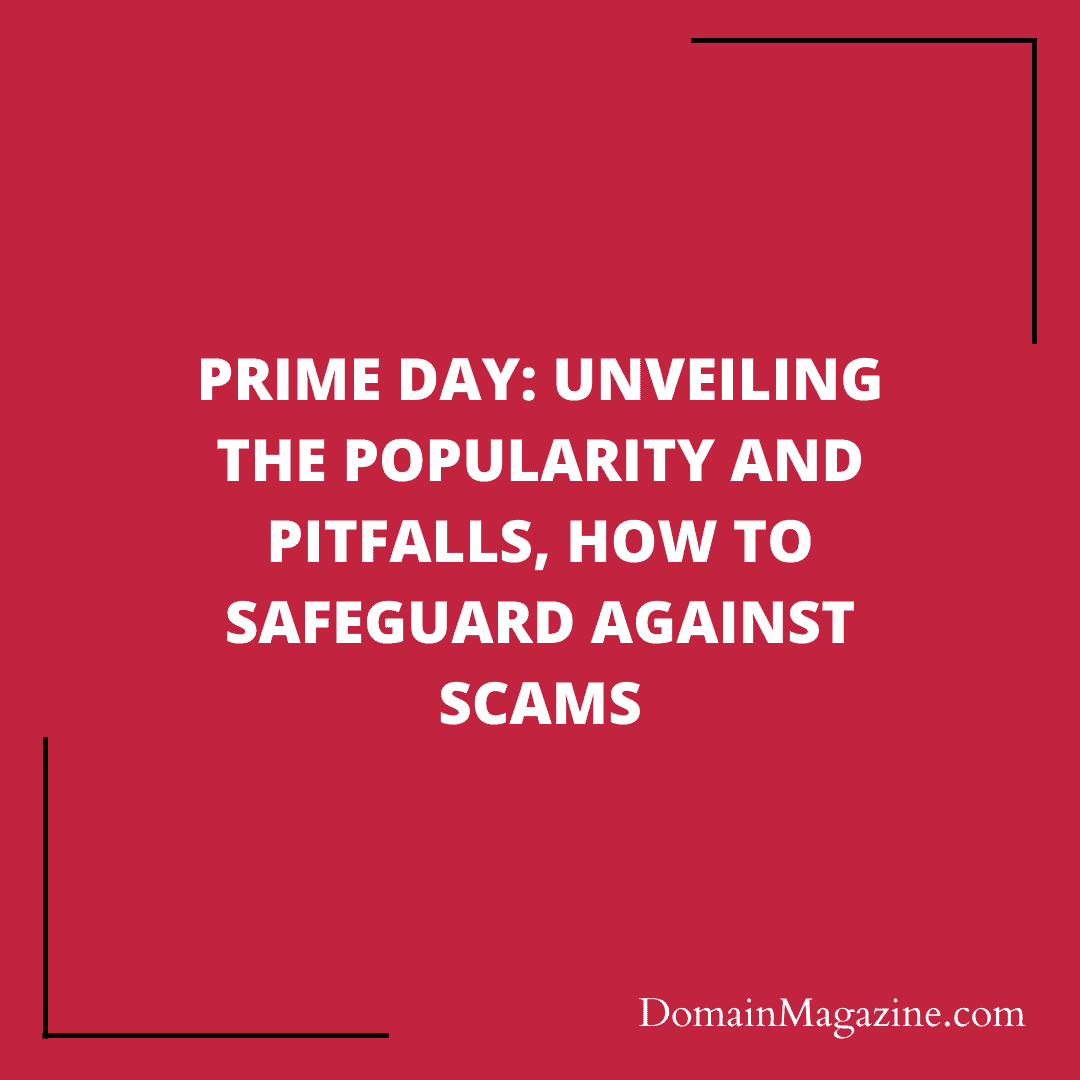As Amazon gears up for its highly anticipated Prime Day extravaganza, consumers across the globe are eagerly awaiting jaw-dropping discounts and exclusive deals. However, beneath the surface of this shopping frenzy lurks an ominous threat: scammers ready to pounce on unsuspecting victims.
With the rise of cybercrime, it has become imperative for vigilant consumers to educate themselves about the scams that often accompany Prime Day. In this article, we explore the popularity and scams surrounding Amazon Prime Day, shedding light on the deceptive tactics employed by fraudsters and equipping readers with the knowledge they need to protect themselves.
Prime Day and the Rising Scam Epidemic

According to recent findings from CounterPoint Research, Amazon-related phishing attacks have seen an alarming 8% increase in the past month alone. The study also revealed that out of 1,500 newly discovered domains, a staggering 92% posed a risk to consumers. These statistics serve as a wake-up call, urging online shoppers to remain vigilant and informed about the potential dangers they may encounter during Prime Day.
The Ingenious Traps Set by Fraudsters
Prime Credit Card Theft: One of the most common Prime Day scams involves phishing emails masquerading as legitimate communications from Amazon. These deceptive messages prey on users’ fears of canceled orders or suspended accounts, urging them to click on malicious links. For instance, one phishing email supposedly sent from “Amazon.co.uk” warned of a declined payment method, directing users to update their details through a fraudulent link. Exercise extreme caution when interacting with such emails and refrain from clicking any suspicious links.
Credentials Theft: Cybercriminals have devised sophisticated methods to extract credit card information from unsuspecting victims. By impersonating Amazon, fraudsters send phishing emails with socially engineered subjects that create a sense of urgency or concern. These emails often contain links redirecting users to counterfeit Amazon payment pages that closely resemble the authentic site. Pay attention to details like slight variations in URL spelling (e.g., “Cvv” instead of “CVV”) and exercise caution when entering sensitive information.
Account Theft: Phishing attacks targeting Amazon Prime accounts are also on the rise. Scammers attempt to trick users by sending emails that appear to originate from Amazon, but careful examination of the email address exposes their true intentions. For example, an email claiming to be from “Amazon.co.jp” may actually be sent from a suspicious address like “[email protected].” Be wary of any email requesting you to click on a link that leads to a fraudulent Amazon login page.
Fake Amazon Payment Page: CounterPoint Research uncovered a fraudulent website designed to mimic the Amazon payment page. With striking similarities to the genuine site, this clone aims to deceive unsuspecting shoppers. The fraudulent website, listed under the address “amazon-prime-unitsexrctvy4e5rf6gyu.square.site,” seeks to dupe users into entering their payment information. Always double-check the website’s URL, and if anything seems amiss or suspicious, exercise caution and refrain from proceeding.
Empowering Vigilant Consumers

While the rise of Prime Day scams is a cause for concern, there are several precautions consumers can take to safeguard their online shopping experiences. The Better Business Bureau (BBB) offers the following tips to help you stay one step ahead of scammers:
Beware of Phishing Attempts: During busy shopping events like Prime Day, phishing attempts soar. Keep track of your purchases, verify their origins, and monitor any tracking numbers associated with them. Remain cautious of unsolicited emails, texts, or calls promising gifts or requesting personal information. Review your opt-in and opt-out settings before clicking on any links.
Exercise Caution with Social Media Ads: Lookalike websites can easily deceive consumers at first glance, appearing to belong to trusted retailers. Scrutinize the URL, checking for slight variations in the domain name spelling. Ensure websites provide legitimate contact information and customer service numbers. Additionally, rely on your instincts when evaluating deals that seem too good to be true.
Vet Websites Thoroughly: Be cautious of lookalike websites that mimic established retailers. Scrutinize the URL for spelling errors or bad grammar, investigate the age of the domain, search for contact information, and read online reviews to gauge legitimacy.
Verify Website Security: Always check for the “HTTPS” protocol in the website’s URL, indicating a secure connection, and look for a small lock icon in the address bar. Avoid entering payment or personal information on websites that lack the “HTTPS” prefix, as they are not secure.
Exercise Caution with High-Demand Products: Scammers often exploit the popularity of sought-after items by offering them at unrealistically low prices. If an item is sold out everywhere else, be wary of incredible deals that seem too good to be true.
Opt for Credit Card Payments: When making online purchases, it is advisable to use credit cards. Credit card companies offer added protection against fraudulent charges, allowing you to contest any suspicious transactions. Be wary of retailers that insist on unconventional payment methods like digital wallets or prepaid money cards.
Stay Alert After Your Purchase: Even after Prime Day concludes, scammers may continue their attempts to deceive shoppers. Remain vigilant and be on the lookout for post-Prime Day scams.
As the countdown to Prime Day begins, it is crucial to acknowledge the prevalence of scams that accompany this highly anticipated event. By remaining vigilant, understanding the tactics employed by fraudsters, and implementing the suggested safety measures, consumers can protect themselves against cyber threats. With awareness and caution, shoppers can navigate the vast online marketplace safely, secure in the knowledge that they are well-equipped to ward off scams.
Disclaimer: This article is for informational purposes only. Readers are advised to exercise their own discretion and follow recommended safety practices while shopping online.


Join the Discussion